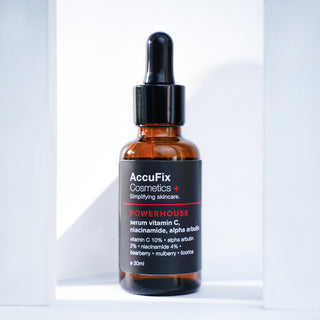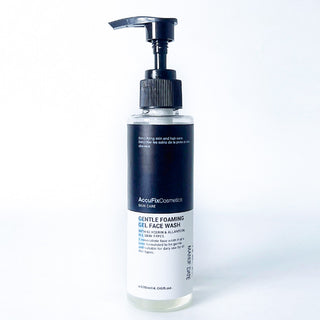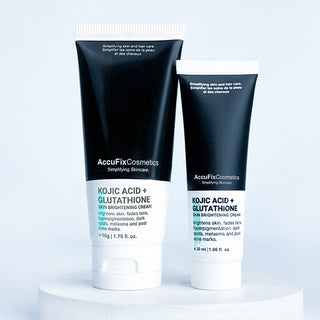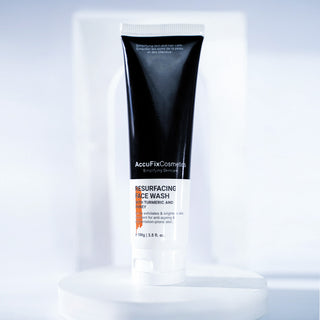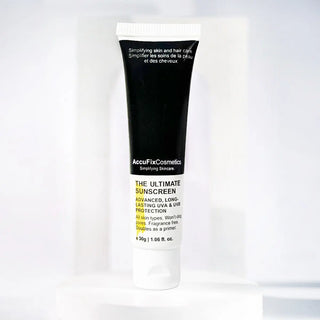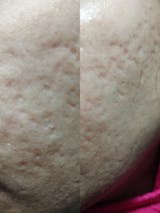Dark spots, uneven skin tone, melasma, acne marks — pigmentation on your face can show up for a hundred different reasons. But here’s the thing: no single ingredient can fix it all. Real pigmentation treatment needs a formula that targets every stage — from melanin production to post-inflammatory darkening — without irritating your skin.
That’s why we made Powerhouse Serum. It’s an all-in-one antioxidant serum packed with five high-performance ingredients: alpha arbutin for skin brightening, vitamin C, niacinamide, and plant-based extracts like bearberry and mulberry. This combo hits every angle — it helps fade existing dark spots, evens out your tone, and blocks new pigmentation from forming.
If you’re looking for the best serum for pigmentation on face, melasma patches, or post-acne marks, this is it. It’s especially effective for oily skin, dull skin, or skin that reacts easily — making it one of the best antioxidant serums in Pakistan.
Bonus: it keeps your routine simple. No layering. No guessing. Just results.
Note
Having a serum in your routine doesn't mean that you can forget about the basics: cleanser, moisturiser, and SPF. Great skin isn't built with one product. It requires a good overall skincare routine, consistency and patience.
Available in: 30ml
- Apply 2–3 drops to damp skin right after cleansing
- Use at night; once your skin builds tolerance, you may also apply in the morning if needed
- Start slowly if your skin is sensitive, then increase gradually
- Do not combine with products containing copper or benzoyl peroxide
Vitamin C (Sodium Ascorbyl Phosphate - 10%)
A stable, gentle form of vitamin C that brightens skin, reduces hyperpigmentation, and protects against environmental damage for a radiant complexion.
Niacinamide - 4%
A powerful antioxidant that improves skin texture, reduces inflammation, and minimizes the appearance of pores while balancing oil production.
Alpha Arbutin - 2%
A highly effective skin-brightening ingredient that helps fade dark spots, acne marks, and hyperpigmentation for an even skin tone.
Bearberry Extract
A natural source of arbutin that works synergistically to lighten pigmentation, reduce dullness, and promote a brighter, more uniform complexion.
Mulberry Extract
Packed with antioxidants, this botanical extract helps to reduce oxidative stress, combat skin discoloration, and improve overall skin radiance.
Aqua, Sodium Ascorbyl Phosphate, Niacinamide, Butylene Glycol, Alpha Arbutin, Arctostaphylos Uva-Ursi Leaf Extract, Morus Nigra Leaf Extract, Dimethyl Isosorbide, Lactic Acid, Phenoxyethanol, Ethylhexylglycerin, Sodium Hyaluronate
Powerhouse Serum Vit C, B3, Alpha Arbutin
- Unit price
- /per

All-in-one antioxidant serum for pigmentation, melasma, acne marks, and dull skin. Combines alpha arbutin, vitamin C, and niacinamide to deliver powerful pigmentation treatment results, brightens skin, evens tone, and restores clarity.
✔️ Suitable for : All skin types, dry skin, oily skin, normal skin, combination skin
✔️ Targets : Hyperpigmentation, dull skin, uneven skin tone, melasma
✔️ Key ingredients : 10% sodium ascorbyl phosphate, 4% niacinamide, 2% alpha arbutin, bearberry extract, mulberry extract, hyaluronic acid
✔️ Fungal acne safe
𝘟 Not suitable for use during pregnancy
If you're looking for the best serum for pigmentation and melasma, this formula combines all the essentials in one bottle.
Formulated without dyes, fragrances and preservatives known to cause adverse skin reactions.





























Anti Dandruff Shampoo Bundle

Clarify & Rebalance Shampoo

Daily Hair Care Essentials

Salicylic Acid Shampoo | Anti-Dandruff Shampoo | Medicated Dandruff Shampoo

Strength & Shine Hair Conditioner

Damage Repair Protein Hair Mask

Frizz Control & Shine Hair Serum

Anti Dandruff Shampoo Bundle

Clarify & Rebalance Shampoo

Daily Hair Care Essentials

Salicylic Acid Shampoo | Anti-Dandruff Shampoo | Medicated Dandruff Shampoo

Strength & Shine Hair Conditioner

Damage Repair Protein Hair Mask

Frizz Control & Shine Hair Serum
Adding product to your cart
Dark spots, uneven skin tone, melasma, acne marks — pigmentation on your face can show up for a hundred different reasons. But here’s the thing: no single ingredient can fix it all. Real pigmentation treatment needs a formula that targets every stage — from melanin production to post-inflammatory darkening — without irritating your skin.
That’s why we made Powerhouse Serum. It’s an all-in-one antioxidant serum packed with five high-performance ingredients: alpha arbutin for skin brightening, vitamin C, niacinamide, and plant-based extracts like bearberry and mulberry. This combo hits every angle — it helps fade existing dark spots, evens out your tone, and blocks new pigmentation from forming.
If you’re looking for the best serum for pigmentation on face, melasma patches, or post-acne marks, this is it. It’s especially effective for oily skin, dull skin, or skin that reacts easily — making it one of the best antioxidant serums in Pakistan.
Bonus: it keeps your routine simple. No layering. No guessing. Just results.
Note
Having a serum in your routine doesn't mean that you can forget about the basics: cleanser, moisturiser, and SPF. Great skin isn't built with one product. It requires a good overall skincare routine, consistency and patience.
Available in: 30ml
- Apply 2–3 drops to damp skin right after cleansing
- Use at night; once your skin builds tolerance, you may also apply in the morning if needed
- Start slowly if your skin is sensitive, then increase gradually
- Do not combine with products containing copper or benzoyl peroxide
Vitamin C (Sodium Ascorbyl Phosphate - 10%)
A stable, gentle form of vitamin C that brightens skin, reduces hyperpigmentation, and protects against environmental damage for a radiant complexion.
Niacinamide - 4%
A powerful antioxidant that improves skin texture, reduces inflammation, and minimizes the appearance of pores while balancing oil production.
Alpha Arbutin - 2%
A highly effective skin-brightening ingredient that helps fade dark spots, acne marks, and hyperpigmentation for an even skin tone.
Bearberry Extract
A natural source of arbutin that works synergistically to lighten pigmentation, reduce dullness, and promote a brighter, more uniform complexion.
Mulberry Extract
Packed with antioxidants, this botanical extract helps to reduce oxidative stress, combat skin discoloration, and improve overall skin radiance.
Aqua, Sodium Ascorbyl Phosphate, Niacinamide, Butylene Glycol, Alpha Arbutin, Arctostaphylos Uva-Ursi Leaf Extract, Morus Nigra Leaf Extract, Dimethyl Isosorbide, Lactic Acid, Phenoxyethanol, Ethylhexylglycerin, Sodium Hyaluronate
Complete Your Routine
Crème B3-B5-E | 4% Niacinamide Cream
from Rs.1,395
- Unit price
- /per
Gentle Foaming Gel Face Wash
Rs.1,395
- Unit price
- /per
Kojic Acid Glutathione Skin Brightening Cream
from Rs.1,495
- Unit price
- /per
Resurfacing Face Wash with turmeric & honey
Rs.1,995
- Unit price
- /per
The Ultimate Sunscreen SPF 50+ PA++++
Rs.1,995
- Unit price
- /per
FAQs
Yes, vitamin C serum can help reduce acne marks. Vitamin C, especially in the form of sodium ascorbyl phosphate, brightens the skin by inhibiting melanin production, which helps fade dark spots and hyperpigmentation left by acne. It also promotes collagen production, which can improve skin texture and reduce the appearance of acne scars. Consistent use over time can lead to a more even and radiant complexion.
Yes, you can use alpha arbutin, vitamin C, and niacinamide together. These ingredients complement each other and target different aspects of skin pigmentation and uneven tone. Alpha arbutin lightens dark spots, vitamin C brightens the skin, and niacinamide soothes and improves overall skin texture. Combining these ingredients in one product enhances their effectiveness without the need for multiple serums in your routine.
Yes, you can use vitamin C and niacinamide together. Although there was a myth that these ingredients might cancel each other out, research has shown they work well together. Vitamin C brightens and protects the skin from environmental damage, while niacinamide helps to calm the skin and improve its texture. Using them together can enhance your skincare routine, providing a balanced approach to addressing various skin concerns.
Alpha arbutin is generally safe to use on active acne, but its primary function is to lighten dark spots and reduce pigmentation rather than treating acne itself. While it won't irritate active acne, it's most effective when used to fade post-acne marks and even out skin tone. For active acne, you might want to pair it with ingredients like salicylic acid or benzoyl peroxide, which specifically target acne.
Both niacinamide and alpha arbutin are effective for treating hyperpigmentation, but they work in different ways. Niacinamide helps reduce the appearance of dark spots by inhibiting the transfer of melanin to the skin's surface, while alpha arbutin directly inhibits the enzyme responsible for melanin production. Using them together can provide a more comprehensive approach to fading hyperpigmentation and achieving a brighter, more even skin tone.
Alpha arbutin can significantly reduce pigmentation, but maintaining results requires consistent use. It works by inhibiting melanin production, which helps to lighten dark spots and even out the skin tone. However, if you stop using it, new pigmentation can develop over time due to factors like sun exposure or hormonal changes. For long-lasting results, it's important to incorporate alpha arbutin into your regular skincare routine and protect your skin from the sun.
Alpha arbutin itself should not cause darkening of the skin; however, if you notice darkening, it could be due to other factors such as increased sun exposure without adequate protection. Alpha arbutin makes your skin more sensitive to UV rays, so it's crucial to use sunscreen daily while using products containing alpha arbutin. If the darkening persists, it’s advisable to consult with a dermatologist to rule out other potential causes.
Yes, niacinamide can be used with alpha arbutin and vitamin C. These ingredients work synergistically to target various skin concerns, including hyperpigmentation, dullness, and uneven skin tone. Niacinamide soothes the skin and improves texture, alpha arbutin lightens dark spots, and vitamin C brightens and protects the skin from environmental stressors. Together, they create a powerful combination for achieving a more radiant and even complexion.
Yes, you can use vitamin C and niacinamide together both in the morning and at night. These ingredients complement each other and work well to address various skin concerns. Vitamin C brightens and protects the skin from environmental damage, while niacinamide calms the skin, reduces inflammation, and improves texture. Using them together twice daily can enhance their benefits, leading to a more even, radiant, and resilient complexion.
Alpha arbutin is not generally recommended during pregnancy due to limited research on its safety for expecting mothers. While it is a gentler alternative to other skin-brightening ingredients, it is still a derivative of hydroquinone, which is best avoided during pregnancy.
Leave A Review
I was suffering from acne from past 10 years .I am using this product from 20 days now And after using salicylic acid face wash twice a day, niacinamide serum then moisturizer and sun screen, and used this powerhouse serum at night . My acne has improved a lot the red spots have decreased. Nothing suited me that much. Thankyou accufix.
I love this serum🤩🤌
This serum removes dark spots and tanning and making my skin brighter 😍
I’ve been using this serum for 2 months...
You need to use their salicylic acid face wash gel before applying the serum and the results are amazing 🤩
I am satisfied with my purchase face wash is very good
Or serum b use kr rha hai its shows results gradually
Powerhouse vitamin C is just game changer. Its been 3 weeks i have been using this serum and results are unbelievable. My dark spots starts fading and it also treats my uneven skin tone. Was facing this problem since 4 years and here the results from this product in just 3 weeks. Love the serum, will order again
Amazing products 👍
Best vitamin c serum
Worthing
This serum is royalty in bottle .
I've been using it for 1 month and my face is glowing like never before . My face was so rough and dull due to pcos and it worked like magic for me.
I love it best serum ever

